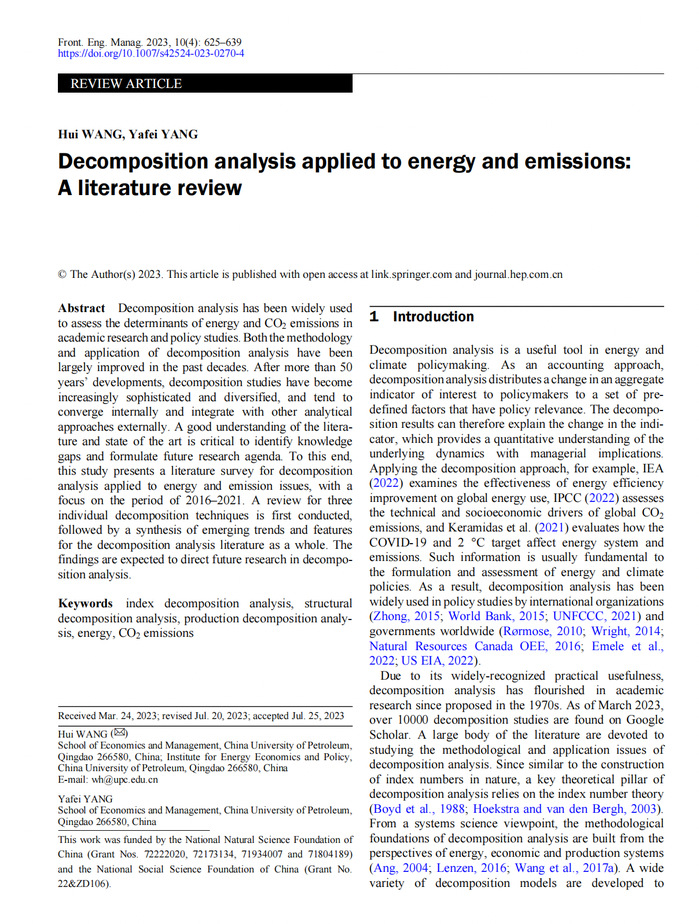Decomposition analysis has been widely used to assess the determinants of energy and CO2 emissions in academic research and policy studies. Both the methodology and application of decomposition analysis have been largely improved in the past decades. After more than 50 years’ developments, decomposition studies have become increasingly sophisticated and diversified, and tend to converge internally and integrate with other analytical approaches externally. A good understanding of the literature and state of the art is critical to identify knowledge gaps and formulate future research agenda. To this end, this study presents a literature survey for decomposition analysis applied to energy and emission issues, with a focus on the period of 2016–2021. A review for three individual decomposition techniques is first conducted, followed by a synthesis of emerging trends and features for the decomposition analysis literature as a whole. The findings are expected to direct future research in decomposition analysis.
主要创新点:
提供了一个分解分析方法在能源和排放领域发展的最新视角,识别了分解分析在模型方法和实证应用上的新兴趋势和特征。

原文链接:https://doi.org/10.1007/s42524-023-0270-4
Edited:Xie Danyang



